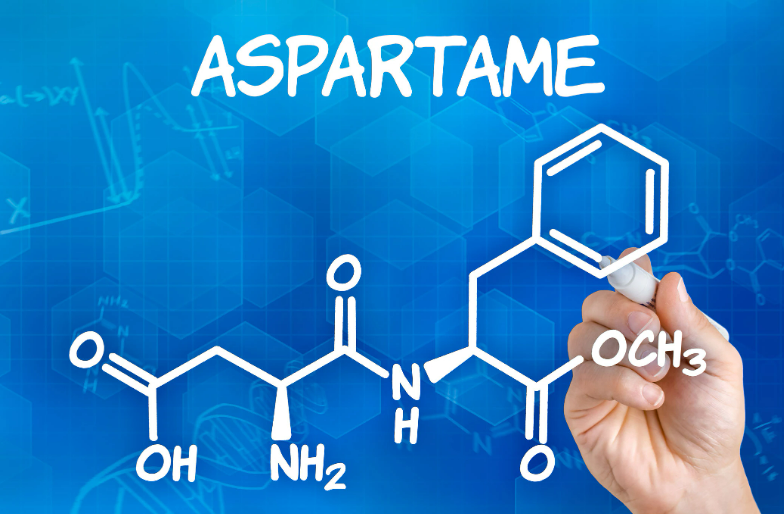Description

Disclaimer: Copyright infringement not intended.
Context
- The cancer research arm of the World Health Organisation (WHO) will list the popular sugar substitute aspartame as “possibly carcinogenic to humans”.
Aspartame
About
- Aspartame is an artificial non-saccharide sweetener 200 times sweeter than sucrose and is commonly used as a sugar substitute in foods and beverages.
- Aspartame is used in a wide range of diet soft drinks, sugar-free chewing gum, sugar-free ice cream, sugar-free breakfast cereals, etc.
Chemical Composition
- Chemically, aspartame is a methyl ester of the dipeptide of two natural amino acids, L-aspartic acid and L-phenylalanine.
- Both of them are naturally-occurring amino acids, which are known as “building blocks” of proteins.
Discovery
- It was discovered by an American Chemist James M Schlatter, while researching an anti-ulcer drug, he happened to lick his finger and detected a sweet taste.
Characteristics
- According to the US Food and Drug Administration (FDA), aspartame is about 200 times sweeter than table sugar — which makes aspartame far less sweet than other artificial sweeteners like advantage and neotame, but even then, 1 gram of aspartame has the sweetness intensity of roughly 2 teaspoons (about 8 g) of sugar.
- Aspartame when digested also produces a small amount of methanol, a compound that is present naturally in fruits and vegetables and their juices.
Usage
- Aspartame is preferred by people trying to cut calories or lose weight, or by diabetics, because while 2 teaspoons (8 g) of sugar provides about 32 kcals of energy, 1 g of aspartame is only 4 kcals.

Is aspartame dangerous?
- Over more than 40 years, aspartame has been one of the most widely studied and rigorously tested chemical additives in food, including for its possible links with cancer. More than 100 studies have found no evidence of harm caused by aspartame.
- There is a broad scientific consensus on the safety of aspartame for all groups of people except one — those suffering from phenylketonuria (PKU), a rare inherited disorder in which the patient does not have the enzyme that is needed to break down phenylalanine, one of the two amino acids in aspartame. Foods containing aspartame carry the warning “Not for phenylketonurics”.
- The USFDA permitted the use of aspartame in food in 1981, and has reviewed the science of its safety five times since then, The Washington Post report said. Aspartame is also certified as safe for human consumption by the European Food Safety Authority (EFSA), national regulators in Japan, Australia, New Zealand, and Australia, and even the WHO’s JECFA. Around 100 countries around the world, including India, permit the use of aspartame.
Aspartame will be listed in July as "possibly carcinogenic to humans" for the very first time by the International Agency for Research on Cancer (IARC), that is WHO’s cancer research arm. The IARC along with the Joint Organization Expert Committee on Food Additives (JEFCA) are currently reviewing the effects and safety of aspartame.
|
PRACTICE QUESTION
Q. The term Aspartame is often in the news. What is Aspartame?
1. An Anti-caking agent.
2. An Artificial Sweetener.
3. An Emulsifier.
4. A Food Preservative.
Correct Answer: 2. An Artificial Sweetener.
|
https://indianexpress.com/article/explained/explained-health/aspartame-sugar-additive-who-health-mpact-sugar-explained-8692751/











